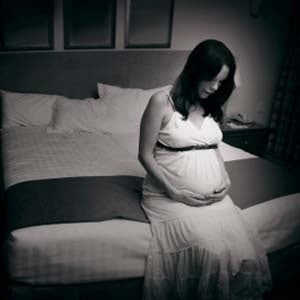
Women with urinary incontinence after giving birth are almost twice as likely to develop postpartum depression as those without incontinence, according to a new study by McMaster University's School of Nursing.
Postpartum depression negatively affects the mother, child, partner, and other children in the family. According to the Canadian Mental Health Association, up to 20% of new mothers experience postpartum depression and an estimated 10% to 35% of women will experience a recurrence of postpartum depression.
In their research, appearing online in the British Journal of Obstetrics and Gynaecology, Professor Wendy Sword and her colleagues set out to examine the relationship between mode of delivery and postpartum depression at six weeks, following hospital discharge. They evaluated almost 1,900 new mothers. One-third had C-section deliveries.
Almost 8% had postpartum depression at six weeks after discharge.
Delivery, depression not linked
The research team found no association between postpartum depression and mode of delivery, and this finding is consistent with previous studies.
But their investigation did show the five strongest predictors of postpartum depression are the mother being less than 25-years-old; the mother having to be readmitted to hospital; non-initiation of breastfeeding; good, fair, or poor self-reported postpartum health; and urinary incontinence or involuntary urination.
"We were surprised to find that urinary incontinence is a risk factor for postpartum depression," said Sword. "Urinary incontinence following childbirth has not received much attention as a factor contributing to postpartum depression and we do not yet fully understand the reasons incontinence is linked to depression."
Sword notes that urinary incontinence is not an uncommon problem after giving birth, and although women may be embarrassed by this issue, it is important that they talk to their health care providers about their concerns. She adds that health professionals should also be proactive and ask women about any bladder problems as part of their postpartum assessments, as it is important to identify problems early so that appropriate action can be taken to improve symptoms and women's well-being. - (EurekAlert!, June 2011)
Read more:
Pregnancy: birth




 Publications
Publications
 Partners
Partners










